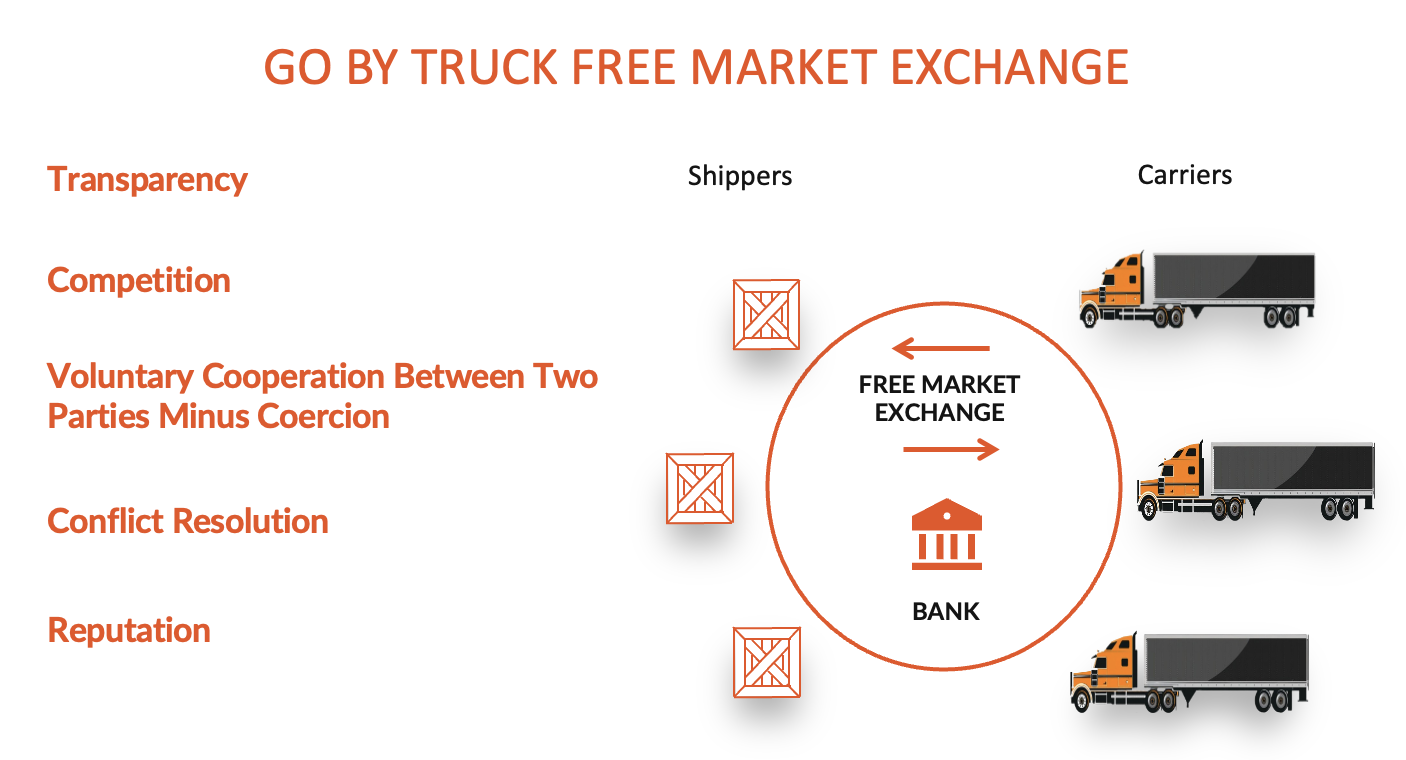
A Moral business Community: The Vision Behind Go By Truck
The vision for Go By Truck's technology was driven by a desire to create a moral business community within the truckload freight industry—one built on transparency, fairness, and trust. From the very beginning, Free-Market Principles were woven into the foundation of the platform, resulting in a system that has profoundly simplified the complexities of current traditional transportation business models.
The Hidden Dynamics of Freight: What Most Shippers Don't See
Most shippers know how many shipments they knowingly route through brokerages. What they likely don’t realize is how many of their shipments, even when given directly to carriers, are moved under the carriers' brokerage authority.
Data from the Federal Motor Carrier Safety Administration (FMCSA) sheds light on the true structure of the U.S. trucking market:
- 95.5% of carriers in the U.S. operate 10 trucks or fewer, accounting for 83.5% of the trucks in the market.
- 1.5% of carriers operate 11-49 trucks, accounting for 1.5% of the trucks in the market.
- 3% of carriers operate 50 or more trucks, accounting for 15% of the trucks in the market.
Current business models allow large carriers to oversell their truck capacity without expanding their fleets. It's a long-standing practice in the industry, quietly accepted but rarely acknowledged.
When combined with the pure brokerage model, most of the freight in the U.S. is managed through these two business models—either directly or indirectly.
Go By Truck's business model: A streamlined, results-driven approach to truck load transportation.
This next generation technology simplifies the entire shipment lifecycle, greatly improving cashflow, and driving greater efficiency through direct, trusted relationships between shippers and carriers.
Processes removed:
- Brokerage
- Short Term Invoice Financing (Brokerage)
- Short Term Invoice Financing (Carrier)
- Accounts Payable and Accounts Receivable Management
- Bad Debt
- Collections
- Corruption Risks
- Cost Associated with Traditional TMS
- Cost Associated with RFP Process
- Removal of Redundant Processes
- Outsourced Relationships
- Freight Bill Auditing
- Cash Flow Restrictions
In addition to the reductions in the current processes, Go By Truck's business model fosters relationships between shippers and carriers. Relationships yield something known as Social Capital, which refers to the value created through relationships, trust and mutual cooperation within the network of people and organizations.
In context between shippers and carriers--this means:
- Trust: The confidence that parties will act fairly and honor commitments.
- Reputation: A history of reliability that encourages future collaboration.
- Reciprocity: A willingness to help one another, leading to smoother transactions.
- Shared Norms: Common expectations that guide behavior without needing formal contracts or oversight.
In short: Social Capital is the invisible currency of strong relationships. It reduces friction, increases loyalty, and creates long-term value—especially in systems repeated, voluntary cooperation matters.